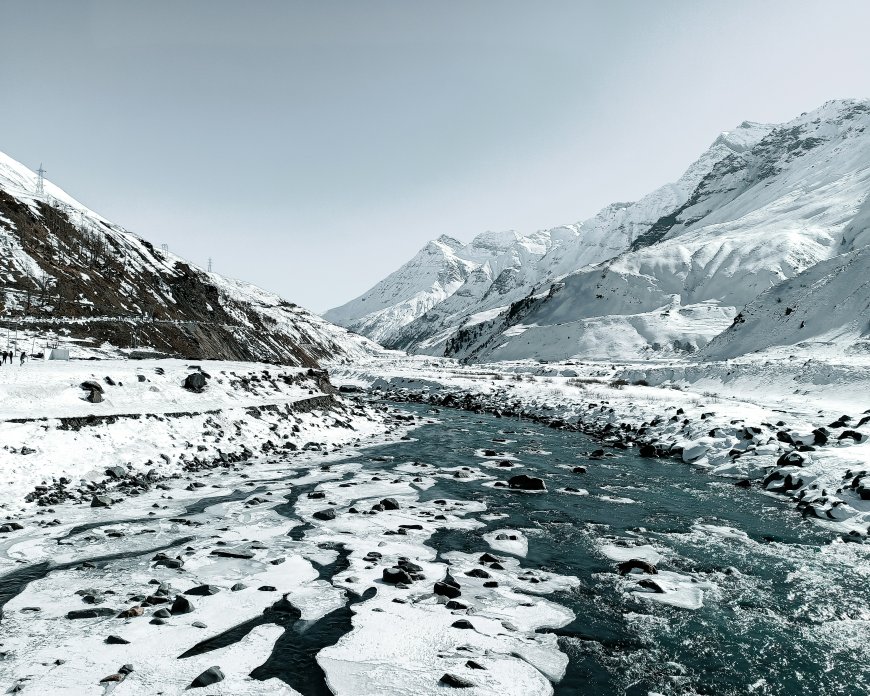7 Cultural Experiences to Enjoy with Your Family in Manali

Manali, a charming hill station nestled in the Himalayas, is not only a paradise for nature lovers and adventure seekers but also a treasure trove of cultural experiences. From its rich traditions, festivals, and local cuisine to the ancient temples and vibrant markets, Manali offers a unique blend of culture that will captivate any visitor. When planning a trip to this picturesque destination, especially with your loved ones, a Manali family package can ensure a well-rounded and unforgettable experience. Here are seven cultural experiences that you and your family must explore while visiting Manali.
1. Explore the Hadimba Devi Temple
The Hadimba Devi Temple, also known as Dhungri Temple, is one of the most iconic cultural landmarks in Manali. Built in 1553, the temple is dedicated to Hadimba, the wife of Bhima from the epic Mahabharata. The architectural beauty of the temple, constructed in the traditional pagoda style, is a sight to behold. The intricately carved wooden doors and the peaceful surroundings make it an ideal spot for family visits.
A visit to this temple provides a glimpse into the local religious practices and ancient legends of the region. Families on a Manali family package will find the temple’s tranquil environment perfect for offering prayers and exploring the surrounding cedar forests.
2. Attend the Traditional Kullu Dussehra Festival
If your family trip coincides with the famous Kullu Dussehra Festival, you are in for a cultural treat. This week-long festival, held in October, is a grand celebration where gods from nearby villages are carried in processions to Kullu. The festival features vibrant folk music, dance performances, and various cultural displays. It is not only a religious event but also a social gathering that showcases the rich cultural heritage of the Kullu Valley.
Attending this festival will give your family an authentic experience of the local traditions and customs. Many Manali tour packages from Mumbai include festival visits as part of the itinerary, making it easier for families to plan their trip around this unique event.
3. Discover the Vashisht Hot Springs and Temples
The village of Vashisht, located just a few kilometers from Manali, is famous for its natural hot springs and ancient temples. The Vashisht Temple, dedicated to the sage Vashisht, is an important spiritual site, while the hot springs are believed to have medicinal properties. The village offers a peaceful retreat and a chance to immerse yourself in the spiritual and healing aspects of local culture.
Families visiting Vashisht can relax in the hot springs and explore the quaint village streets, soaking in the local way of life. It's a great stop on any Manali family package, providing a perfect blend of culture, history, and nature.
4. Experience the Charm of Old Manali
Old Manali is a quiet, rustic village located above the bustling town of New Manali. Known for its charming wooden houses, narrow lanes, and serene environment, Old Manali offers an authentic cultural experience. The village is a great place to explore on foot, with its cafes, handicraft shops, and local markets that showcase traditional Himachali goods.
Families will enjoy interacting with the friendly locals, tasting traditional food, and shopping for souvenirs. A Manali tour package from Mumbai that includes a visit to Old Manali allows you to see a different, more laid-back side of this popular destination.
5. Enjoy a Day at the Manali Gompa
The Manali Gompa, also known as the Gadhan Thekchhokling Gompa, is a Tibetan monastery that stands as a symbol of peace and spirituality. This vibrant monastery, adorned with colorful murals and prayer wheels, is a significant part of the local Buddhist culture. A visit to the gompa offers insight into the Tibetan way of life, with monks often engaged in their daily rituals.
Families can spend time exploring the serene monastery grounds, learning about Buddhist customs, and enjoying the peaceful atmosphere. The Manali family package often includes visits to important religious sites like this, providing a holistic cultural experience for visitors.
6. Savor Traditional Himachali Cuisine
No trip to Manali is complete without tasting the local cuisine. Himachali food is known for its simplicity, yet it is packed with flavors. From Dham, a traditional feast served during festivals, to popular local dishes like Siddu, Chana Madra, and Babru, Manali offers a range of delectable foods that will introduce your family to the local culinary traditions.
Many restaurants and dhabas in Manali serve authentic Himachali cuisine, giving families a chance to enjoy the flavors of the region. When booking a Manali tour package from Mumbai, look for options that include traditional dining experiences, ensuring your family gets to savor the local specialties.
7. Shop for Local Handicrafts and Souvenirs
Manali’s bustling markets are perfect for families who love to shop. The Mall Road, Manu Market, and Tibetan Market are some of the most popular spots where you can find a wide range of local handicrafts, woolens, and souvenirs. Pashmina shawls, Tibetan jewelry, wooden artifacts, and handcrafted items are some of the must-buys in Manali.
Exploring the local markets also provides insight into the artisanal skills and craftsmanship of the people of Himachal Pradesh. Shopping for these items can be a fun family activity, allowing you to take a piece of Manali’s culture back home. A Manali family package that includes time for market visits will ensure that you don't miss out on these beautiful local creations.
Conclusion
Manali is not just a place of natural beauty and adventure; it is also rich in cultural heritage and traditions. From ancient temples and festivals to local cuisine and handicrafts, Manali offers a variety of cultural experiences that are perfect for families. Whether you are attending the Kullu Dussehra Festival, exploring Old Manali, or relaxing at the Vashisht hot springs, each experience provides a deeper understanding of the region's unique culture.
What's Your Reaction?
 Like
0
Like
0
 Dislike
0
Dislike
0
 Love
0
Love
0
 Funny
0
Funny
0
 Angry
0
Angry
0
 Sad
0
Sad
0
 Wow
0
Wow
0















































